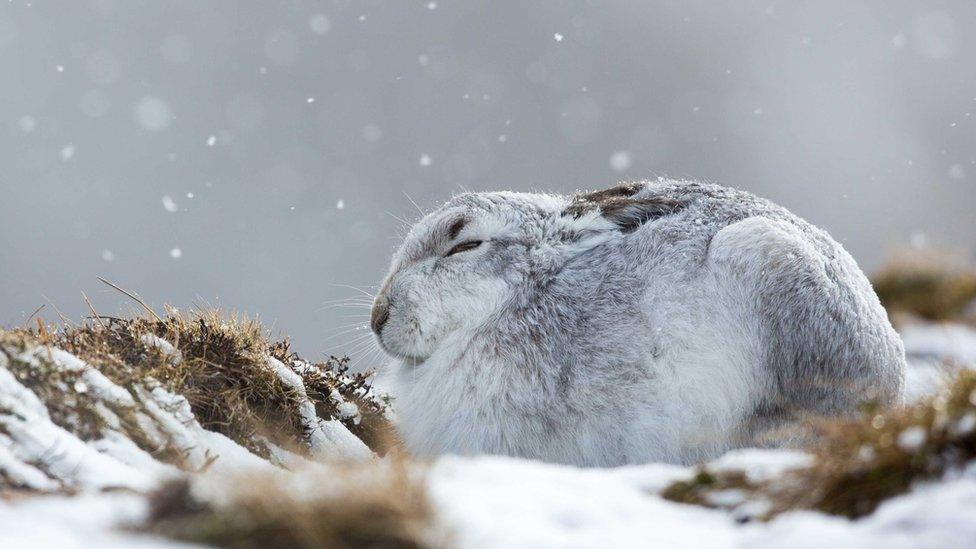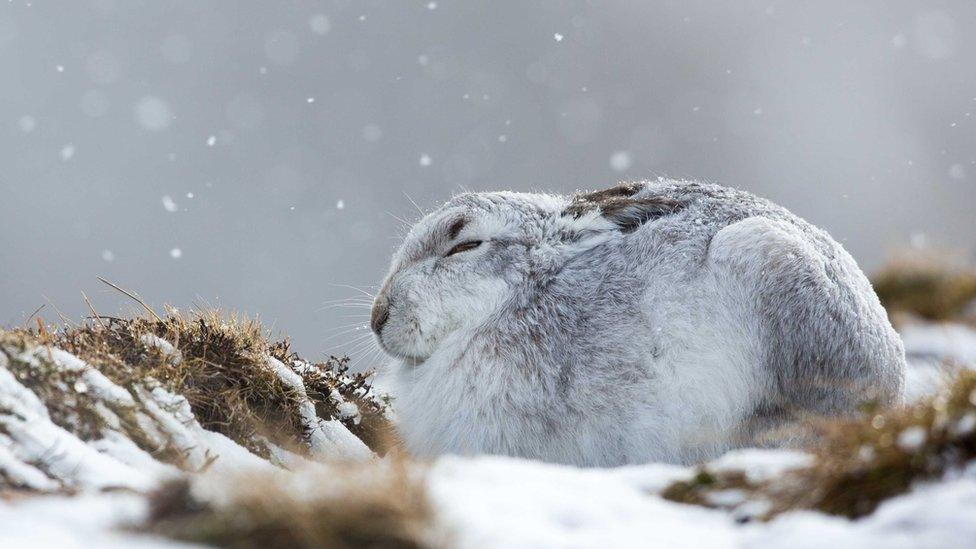Peak District's last mountain hares 'need legal protection'
- Published

Mountain hare pelage is brown in summer and turns white in winter
Tougher legislation is needed to protect mountain hares in the Peak District, campaigners have said.
New laws have now been passed in Scotland to prevent mountain hares from being culled without a licence.
But groups, such as the Derbyshire Wildlife Trust, are now calling for the same protections for England's last surviving mountain hare population.
The government has said its 25-year environment plan will protect "iconic species such as the mountain hare".
On Monday it became a criminal offence to commit an unlicensed cull of the hares in Scotland following concerns about falling numbers of the native species.
Recent studies suggest there are about 2,500 mountain hares in the Peak District, which experts say is "not large" for an isolated population.
Derbyshire Wildlife Trust conservation manager Tim Birch said: "I've personally witnessed dead mountain hares in snares and in traps. This is not what people expect of the most iconic mammal in the Uplands and the Peak District.
"We need to see that stopped, and we need to see tougher legislation to protect mountain hares."

The Peak District mountain hares are the last surviving population of their species in England
However, Scottish gamekeepers have said the new legislation is a "grave mistake" and bad for land management.
They argued culls were necessary to prevent damage being caused to sensitive habitats as well as reducing the risk of a tick-borne disease spreading to grouse.
Sue Alderman, chairwoman of the Hare Preservation Trust, said incidents of louping ill virus, which can be carried by hares and passed on to grouse, were "negligible" in the Peak District.
"There really isn't an excuse not to have the Scottish provision extended [to England]," she said.
The Department for Environment, Food and Rural Affairs (Defra) is considering whether to extend the legal protections for mountain hares.
A Defra spokesperson said through the environment plan, it will "be creating or restoring 500,000 hectares of wildlife-rich habitat to provide benefits for them and other species, and Natural England's Back from the Brink programme is working to put over 100 priority species on the road to recovery by the end of this year".

Follow BBC East Midlands on Facebook, external, Twitter, external, or Instagram, external. Send your story ideas to eastmidsnews@bbc.co.uk.
Related topics
- Published31 January 2021

- Published27 January 2021
